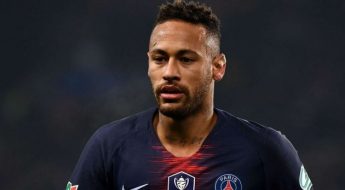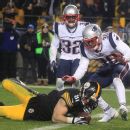Hall of Famer Kenny Easley: For the most part, football loved me back

Kenny Easley now refers to it as a divorce.
From the time his career ended because of a kidney ailment in 1987 to when the Seattle Seahawks inducted Easley into their Ring of Honor in 2002, he wanted nothing to do with the NFL.
“I had every right to be angry,” Easley said. “And I decided at that point that if I never talked to the Seahawks or to anybody in the Seahawks organization, it’d be fine with me. And it was 15 years. I didn’t watch a football game or Seahawks game or basically any kind of football.”
The question of “What if?” comes up often in football circles when discussing Easley. From 1981 to 1987, he totaled 32 interceptions and was one of the finest defensive players in the league, making the Pro Bowl five times and earning first-team All-Pro honors on three occasions. Easley was voted into the Pro Football Hall of Fame on Saturday, attaining 80 percent approval from the 48-person selection committee.
But in 1987, after he was traded to the Phoenix Cardinals, Easley failed his physical.
“When the general manager, the head trainer and the doctor walked in my room, immediately I could sense that something’s wrong,” Easley said. “And they tell me, the doctor basically says, ‘There’s no other way I can tell you this, but you failed the physical.’ And it was like somebody had punched me in the gut and knocked the wind out of my sails. I tried to compose myself and say, ‘What do you mean?’ They told me I had a kidney ailment. And in fact, I needed to be in an Arizona hospital right now.”
Easley’s wife was pregnant in Seattle, so he decided to fly back home before seeking medical attention. But he would never play another snap in the NFL.
Easley was angry at the Seahawks organization for a long time. He said the large amounts of Advil he took for pain relief contributed to the kidney ailment and argued the team knew about his condition before the 1987 season but didn’t tell him.
No relationship existed between the Seahawks and one of their most legendary players until 2002, when the organization, under owner Paul Allen, reached out to Easley about being inducted into the team’s Ring of Honor.
It was then that a friend informed Easley he was the only defensive starter on the NFL 1980s All-Decade Team to not yet be inducted into the Pro Football Hall of Fame.
Hall of Famer Ronnie Lott has called Easley the best safety to ever play. And coaching guru Bill Walsh said Easley was a Hall of Fame player. But according to Easley, coaches didn’t even play him at his best position during his seven-year NFL career.
“I don’t have any doubt in my mind, not one iota of doubt, that I would have been a better free safety in the NFL than a strong safety,” Easley said.
He had been a three-time consensus All-American playing free safety at UCLA before the Seahawks drafted Easley with the No. 4 overall pick.
But when he got to training camp as a rookie, Easley discovered the coaches wanted him at strong safety.
“Now I can understand why they did it,” Easley said. “They were probably looking at me being 6-foot-3, 210 pounds, basically a defensive back linebacker. They were looking at me as being another run-stopper that could defend the pass. And so it was just simply based on my size. But the problem was that playing free safety all of my life and then to be put at strong safety, it’s a whole different game.”
That’s the greatness of Easley. Given his combination of physicality, athleticism and playmaking ability, he probably could have been a Hall of Fame-caliber player at either position.
The football world got robbed of seeing Easley’s career last longer, but fans and peers alike witnessed greatness when they saw him play.
“I loved football and loved everything about football — practice, training, meetings, film study, I loved it all,” Easley said. “And for the most part, football loved me back.”






